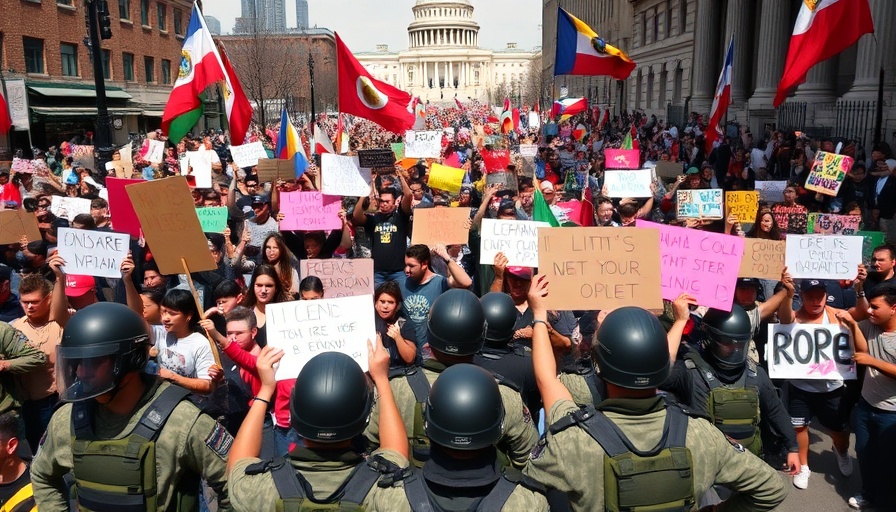
Marines Deployed Amid Protests: A Response to Chaos
In a significant move amid escalating tensions in Los Angeles, 700 active-duty Marines have been activated and are poised to integrate with the National Guard already deployed in the city. This deployment, announced by U.S. Northern Command, aims to bolster security during ongoing protests against Immigration and Customs Enforcement (ICE) arrests, a controversial issue that has ignited public outcry across the country.
Understanding the Context: Why Now?
The sudden activation of Marines from the 2nd Battalion, 7th Marine Regiment, based in Twentynine Palms, California, has raised questions. These events follow President Trump's controversial comments and the federalization of state troops, aimed at protecting federal assets and ICE agents from perceived threats. Critics, including California Governor Gavin Newsom, have argued that the situation was manageable before federal forces were involved, escalating tensions rather than alleviating them.
The Potential Consequences of Military Presence
Law enforcement experts have expressed concerns over the potential chaos that armed federal troops might inject into an already volatile environment. Los Angeles Police Chief Jim McDowell emphasized the need for clear coordination between local and federal agencies to mitigate the risks of misunderstandings and miscommunication. The arrival of military personnel can be a double-edged sword, where the intention to restore order might inadvertently provoke further unrest.
Political Fallout: Lawsuits and Public Discourse
Amidst the military mobilization, California has initiated legal action against the Trump administration claiming that the deployment of National Guard members without proper coordination is illegal. This lawsuit underscores a broader confrontation between state and federal authorities, one that highlights the complexities of governance amid a national crisis. Newsom's comments reflect his administration's commitment to managing the situation locally without militarization, a stance which resonates with many community leaders.
Public Sentiment and the Future of ICE Protests
The protests themselves are rooted in deep societal divisions regarding immigration policies and national security. Many demonstrators assert that the increased military presence is emblematic of a government that prioritizes enforcement over empathy. As public sentiments swirl, the coming days may shape the narrative around federal intervention in local matters.
The Role of the Media in Shaping Narratives
As events unfold, the media plays a crucial role in providing accurate information and context to the public. News outlets have been closely following this story, analyzing every nuance of military and police interactions within the community. Audiences look not only for breaking news updates but for a deeper understanding of the implications these actions carry, both locally and nationally.
What Lies Ahead?
The next few days will be critical as Marines begin their integration into the Los Angeles area. Observers will be watching closely for any signs of escalation or resolution as both state and federal agencies attempt to navigate this complex situation. The intersection of military presence with civil protests raises essential questions about governance, accountability, and community welfare.
For those following the story, staying informed is vital. Understanding the root causes of these protests and the implications of federal intervention can empower communities and foster productive dialogues.
 Add Element
Add Element  Add Row
Add Row 



Write A Comment